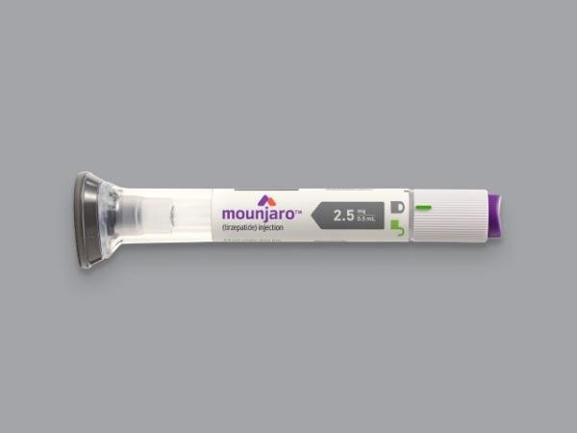Wellhealthorganic.com Symptoms of Vitamin Deficiency

Vitamin deficiencies are common health issues that can cause various physical and mental symptoms. A balanced diet is essential for maintaining your body’s nutrient levels, but even with careful planning, deficiencies can arise. The article wellhealthorganic.com symptoms of vitamin deficiency is a great resource to help identify these symptoms and take proactive steps toward better health. Understanding these signs can help you address the root causes before they escalate into more severe health problems.
What is Vitamin Deficiency?
Vitamin deficiency occurs when your body lacks the essential vitamins it needs for optimal functioning. Vitamins are vital for energy production, immune defense, cell repair, and other bodily functions. A deficiency can result from poor dietary choices, medical conditions, or lifestyle factors like stress and lack of sunlight. Wellhealthorganic.com explains that recognizing the symptoms early can prevent long-term damage and complications.
Common Symptoms of Vitamin Deficiency
Fatigue and Weakness
One of the first signs of a vitamin deficiency is fatigue. If you’re constantly tired despite getting adequate sleep, it could point to a lack of vitamin B12 or vitamin D. Wellhealthorganic.com highlights that vitamin D deficiency, in particular, affects energy levels and muscle strength. This often happens due to limited exposure to sunlight or insufficient dietary intake of fortified foods.
Skin and Hair Issues
Your skin and hair reflect your overall health, and deficiencies can manifest as dryness, hair loss, or brittle nails. Wellhealthorganic.com symptoms of vitamin deficiency include vitamin E deficiency, which can lead to premature aging signs, or vitamin C deficiency, which causes scaly and rough skin. If left unchecked, these symptoms can worsen over time and require medical intervention.
How Vitamin Deficiency Impacts Your Body
Immune System Weakness
A well-functioning immune system depends heavily on vitamins like A, C, and D. Deficiencies in these vitamins can make you more susceptible to infections. For example, vitamin C deficiency weakens your immune response, making it harder for your body to fight off colds and flu. Wellhealthorganic.com also stresses the importance of vitamins for recovery after illnesses or injuries.
Neurological and Cognitive Problems
Certain vitamin deficiencies, such as a lack of vitamin B12, can lead to neurological and cognitive problems. Symptoms include memory loss, difficulty concentrating, and tingling sensations in the extremities. Wellhealthorganic.com symptoms of vitamin deficiency also mention that prolonged deficiencies can cause irreversible damage to nerve cells if not treated promptly.
Bone and Joint Pain
Vitamin D is crucial for bone health, as it helps your body absorb calcium efficiently. A deficiency can result in weak, brittle bones and increase the risk of fractures. Wellhealthorganic.com mentions that children with vitamin D deficiency may develop rickets, a condition characterized by soft and deformed bones. Adults with this deficiency often experience chronic joint pain and osteoporosis.
Recognizing Symptoms by Vitamin Type
Vitamin A Deficiency
Vitamin A deficiency is most often associated with vision problems like night blindness and a general decline in eye health. It also contributes to dry skin and reduced immunity. Wellhealthorganic.com symptoms of vitamin deficiency recommend eating more carrots, sweet potatoes, and leafy greens to combat this issue.
Vitamin B Deficiencies
The B-complex group includes several vitamins, each playing a unique role. Vitamin B1 deficiency causes beriberi, leading to muscle weakness and cardiovascular problems. Vitamin B2 and B3 deficiencies often result in cracked lips, inflamed tongue, and skin irritation. Wellhealthorganic.com emphasizes a diet rich in whole grains, meat, and eggs to prevent these issues.
Vitamin C Deficiency
A lack of vitamin C can cause scurvy, a condition characterized by gum bleeding, joint pain, and slow wound healing. Fruits like oranges, strawberries, and kiwi are excellent sources of this vitamin. Wellhealthorganic.com symptoms of vitamin deficiency emphasize the importance of consuming fresh fruits daily to avoid scurvy.
Vitamin D Deficiency
Vitamin D deficiency remains one of the most widespread problems globally. Symptoms include chronic fatigue, bone pain, and a higher risk of fractures. Sunlight exposure is the most natural way to increase vitamin D levels. Wellhealthorganic.com suggests supplementing your diet with fatty fish and fortified dairy products if sunlight exposure is limited.
Also Read: Bestadvise4u.com Health: A Guide to Wellness
Vitamin E and K Deficiencies
Vitamin E deficiency may lead to neurological symptoms, while vitamin K deficiency affects blood clotting. These deficiencies are less common but still significant. According to wellhealthorganic.com symptoms of vitamin deficiency, a diet rich in nuts, seeds, and green vegetables can help maintain adequate levels.

Lifestyle Changes to Prevent Vitamin Deficiency
Preventing vitamin deficiency requires simple but consistent lifestyle changes. A balanced diet rich in whole foods like fruits, vegetables, lean proteins, and healthy fats is crucial. Incorporate foods that are naturally rich in vitamins, such as citrus fruits for vitamin C and fish for vitamin D. Regular outdoor activity helps maintain optimal vitamin D levels through sunlight exposure. Reducing alcohol consumption can also improve the body’s ability to absorb and utilize essential nutrients. Wellhealthorganic.com emphasizes the importance of mindful eating, staying hydrated, and avoiding fad diets that eliminate entire food groups. These changes not only prevent deficiencies but also promote overall health and vitality.
Also Read: Arhar Dal Recipe: A Staple Dish in Indian Kitchens
Preventing Vitamin Deficiency Through Diet
Incorporating a Balanced Diet
A well-balanced diet is the most effective way to prevent vitamin deficiency. Focus on including a variety of fruits, vegetables, whole grains, proteins, and healthy fats. Wellhealthorganic.com highlights that fortified foods and dietary supplements can help fill nutritional gaps when necessary.
| Vitamin | Key Sources | Symptoms of Deficiency |
|---|---|---|
| Vitamin A | Carrots, spinach, sweet potatoes | Night blindness, dry skin |
| Vitamin B12 | Meat, dairy, fortified cereals | Fatigue, neurological issues |
| Vitamin C | Citrus fruits, strawberries, kiwi | Gum bleeding, slow wound healing |
| Vitamin D | Sunlight, fatty fish, egg yolks | Bone pain, weak immunity |
| Vitamin E | Nuts, seeds, vegetable oils | Nerve damage, vision problems |
Also Read: The Path to a Healthy Life with WellHealthOrganic
Causes of Vitamin Deficiency
Vitamin deficiency often arises from a combination of dietary, lifestyle, and medical factors. Poor dietary habits are a leading cause, particularly diets low in fresh fruits, vegetables, and whole foods. Highly processed diets often lack essential nutrients, making deficiencies more common. Medical conditions like celiac disease, Crohn’s disease, or chronic alcoholism can impair nutrient absorption, leading to deficiencies over time. Additionally, lifestyle factors like limited sun exposure contribute to vitamin D deficiency, especially for those living in colder climates. Certain medications can also interfere with the absorption of vitamins like B12 or folate. Wellhealthorganic.com emphasizes the importance of understanding these causes to take preventive measures effectively.
When to Seek Professional Help
Noticing early symptoms of vitamin deficiency is crucial, but professional advice is sometimes necessary. Persistent fatigue, unexplained weight loss, and severe hair loss are signs you shouldn’t ignore. Wellhealthorganic.com advises consulting a healthcare professional for a diagnosis and tailored treatment plan.
Also Read: Deen Dayal Upadhyay Health Card Way to Affordable Healthcare
How to Choose the Right Supplements
Choosing the right supplements can feel overwhelming, but a few key steps simplify the process. First, identify your specific deficiencies through a healthcare provider’s advice or blood tests. Look for supplements that provide the recommended daily allowance (RDA) without exceeding safe limits. Opt for high-quality brands with third-party testing to ensure safety and efficacy. Wellhealthorganic.com highlights the value of natural sources whenever possible, but supplements can help fill gaps in your diet. Always read labels carefully and avoid supplements with unnecessary additives. Consulting a healthcare professional ensures that your choice aligns with your specific health needs and lifestyle.
Also Read: Beauty Glazed Eyeshadow Palette: Known For Its Beauty Mystery
Conclusion
Vitamin deficiencies can significantly impact your quality of life if left unchecked. Recognizing symptoms early, such as those outlined in wellhealthorganic.com symptoms of vitamin deficiency, can help you take the right steps toward recovery. Whether it’s improving your diet, increasing sunlight exposure, or taking supplements, small changes can make a big difference. Prioritize your health by staying informed and proactive, ensuring that your body gets the nutrients it needs to thrive.
Also Read: Wellhealthorganic.com : Remove Dark Spots On Face Tang – Lemon Juice






